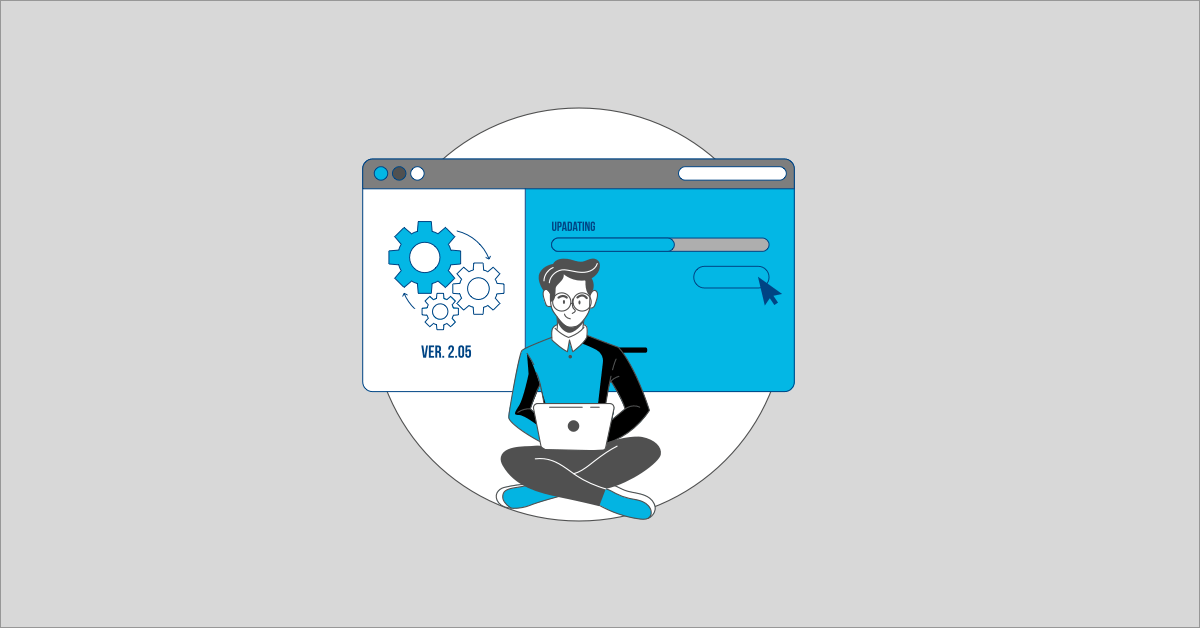Ever feel like a digital detective, hunting down hidden software glitches before they wreak havoc? That's the life of a test automation engineer. It's a dynamic field that blends technical skills with a keen eye for detail. This guide explores the exciting world of a test automation engineer career, covering everything from key responsibilities and essential skills to career progression and future trends. Whether you're just starting out or looking to level up your career, we'll equip you with the knowledge you need to succeed in this rapidly evolving landscape. We'll debunk common misconceptions, highlight the challenges and opportunities, and provide actionable steps to get you started on your test automation journey.
Key Takeaways
- Test automation engineering blends technical skills and strategic thinking: It's not just about writing scripts. You'll need a solid grasp of programming, testing methodologies, and strong communication skills to succeed. Continuous learning is essential to keep up with emerging technologies and evolving development approaches.
- A TAE career offers diverse growth opportunities: From junior roles to leadership positions like Automation Architect or Team Lead, you can specialize in areas like performance or security testing. Build a strong portfolio, network actively, and focus on a niche area to advance your career.
- Test automation requires continuous learning and adaptation: The field is constantly evolving. Balancing manual and automated testing, staying updated on the latest tools, and deepening your understanding of testing principles are crucial for long-term success. Embrace the challenge and enjoy the process of continuous growth.
What is a Test Automation Engineer?
Test automation engineers (TAEs) develop automated scripts to test software throughout its development lifecycle. Instead of manually testing every feature, they design, write, and maintain these scripts to catch bugs early and ensure quality. Think of them as coding detectives, writing programs to hunt down software glitches before they impact users. This approach not only speeds up the testing process but also improves accuracy and frees up other team members for more complex tasks.
Key Responsibilities
A deep understanding of both software testing and programming is fundamental for a TAE. The more technical knowledge you have, the more sophisticated and effective your test scripts become. You'll be responsible for designing and developing these automated tests, executing them, and analyzing the results. Strong problem-solving skills are essential, as you'll need to identify the root cause of any issues and communicate them clearly to the development team. Collaboration is also key, as TAEs work closely with developers, product managers, and even clients to ensure the software meets everyone's expectations.
Role in the Software Development Lifecycle
TAEs play an integral role throughout the software development lifecycle, collaborating with various teams from the initial design stages through to deployment. They're involved early in the process, helping to prevent bugs rather than just finding them after the fact.
This proactive approach is especially important in today's fast-paced development environments, where Agile and CI/CD methodologies are becoming increasingly common. Automation testing is crucial for these rapid release cycles, ensuring that software is thoroughly tested before it reaches users.
Essential Skills and Qualifications
A successful career as a test automation engineer requires a unique blend of technical expertise, testing methodologies, and strong interpersonal abilities. Let's break down the essential skills and qualifications you'll need.
Technical Skills and Programming Languages
A solid understanding of programming is at the heart of test automation. You'll write scripts to automate tests, so proficiency in languages like Java, Python, and JavaScript is key. Familiarity with common automation tools and frameworks like Selenium, Appium, and JUnit is also crucial. The more technical knowledge you have, the more effectively you can create advanced test scripts and contribute to robust testing.
Testing Concepts and Methodologies
Technical skills are only one part of the equation. A deep understanding of software testing concepts and methodologies is equally important. This includes various testing approaches, such as black-box, white-box, and gray-box testing, along with different testing levels (unit, integration, system, and acceptance testing). Knowing when and how to apply these concepts is essential for designing effective test suites and comprehensive testing strategies.
Essential Soft Skills
While technical expertise is a must-have, soft skills distinguish good test automation engineers from great ones. Effective communication is paramount, as you'll collaborate with developers, product managers, and other stakeholders. You'll need to clearly articulate complex technical issues, provide constructive feedback, and work effectively in a team. Strong problem-solving skills are also essential for identifying bugs and developing creative solutions. Finally, attention to detail is non-negotiable—a small oversight can have significant consequences. Cultivating these soft skills will make you a valuable asset.
Career Path and Progression
A career as a Test Automation Engineer offers a clear path for growth, with increasing responsibility and expertise at each level. Whether you're just starting or looking to advance, understanding these stages can help you plan your next steps.
Entry-Level Positions
You'll typically begin your automation journey as a Junior Automation Engineer. Your primary focus will be adding tests to existing frameworks, building foundational skills in automation testing, and becoming familiar with a company's codebase. You'll learn to use testing tools and frameworks, write basic test scripts, and understand the software development lifecycle. It's a great opportunity to learn from senior engineers and gain practical experience.
Mid-Level Opportunities
As you gain experience and demonstrate your skills, you can advance to a Mid-Level Automation Engineer position. You'll take on more responsibility, adding new features to existing frameworks and creating automated tests. This stage deepens your technical skills and understanding of testing methodologies. You'll contribute more significantly to the testing process, work more independently, and potentially mentor junior team members.
Senior Roles and Leadership
Senior roles offer exciting opportunities for leadership and advanced technical expertise. As a Senior Automation Engineer, you might build complete test projects, review code for quality and efficiency, and mentor junior engineers. This level requires deep knowledge of automation tools, best practices, and designing robust and scalable testing solutions. You might also specialize in areas like performance or security testing.
Current Trends and Future Outlook
The field of software testing is constantly evolving. To stay ahead, test automation engineers need to keep up with the latest trends and look toward future opportunities. This section covers some key areas shaping the future of test automation.
AI and Machine Learning Integration
AI and machine learning are transforming software testing, enabling more efficient and effective test automation. These technologies can analyze vast amounts of data to identify patterns, predict potential defects, and even generate test cases automatically. This not only speeds up the testing process but also improves the overall quality of software.
Companies adopting Agile and CI/CD methodologies are increasingly relying on AI-powered test automation solutions like MuukTest to keep up with the demand for faster release cycles and higher software quality.
Shift-Left Testing and DevOps
Shift-left testing emphasizes testing earlier in the software development lifecycle. This helps identify and address bugs sooner, reducing costs and improving overall efficiency. DevOps practices, which emphasize collaboration and automation throughout the development process, further reinforce the importance of test automation.
As these practices become more prevalent, test automation engineers will play a crucial role in ensuring software quality and faster delivery. This means staying current with new technologies and tools is more important than ever.
Emerging Technologies and Skills
The test automation landscape is constantly evolving with new technologies and tools emerging all the time. The industry's projected growth, estimated at a 14.2% compound annual growth rate from 2021 to 2026, highlights the increasing demand for skilled test automation engineers. This growth presents both challenges and opportunities.
Test automation engineers need to continuously learn and adapt to stay competitive. Focusing on advanced skills like AI/ML integration, cloud-based testing, and API testing will be crucial for career advancement.
Common Misconceptions About Test Automation Careers
Let's clear up a few common misconceptions about test automation careers. These myths can deter talented people from exploring this rewarding field, so let's set the record straight.
"It's Just Writing Scripts"
While scripting is definitely part of a Test Automation Engineer's job, it's not the whole picture. Thinking test automation is just writing scripts is like saying building a house is just hammering nails. Sure, it's a necessary skill, but the real work involves careful planning, understanding the architecture (of the software, in our case!), and knowing how all the pieces fit together. Testing requires creativity and a deep understanding of how software can fail. It's about anticipating problems, designing effective tests, and ultimately, ensuring a great user experience. It's much more strategic and nuanced than simply churning out lines of code.
"Testers Are Weak Coders"
This couldn't be further from the truth. Test Automation Engineers need solid coding skills to build effective automated tests. They work with a variety of programming languages like Java, Python, and JavaScript, and they need to be comfortable working with databases and troubleshooting technical issues. In fact, many Test Automation Engineers start their careers as developers and transition into testing because they enjoy the challenge of breaking things and finding creative solutions.
"Software Testing Is Easy"
If you think clicking a few buttons is all it takes to test software, think again. Effective software testing requires a deep understanding of software development principles, testing methodologies, and user behavior. It's about understanding how different components interact, identifying potential points of failure, and designing tests that cover a wide range of scenarios. It's a challenging field that requires critical thinking, problem-solving skills, and a dedication to quality. It's definitely not a walk in the park, but it is a rewarding career for those who enjoy a good puzzle.
Challenges and Opportunities in Test Automation
This career path isn't without its hurdles. But the challenges in test automation also present exciting opportunities for growth and innovation. Let's explore some of these dynamics.
Keeping Up with Rapid Technology Changes
The software world is constantly evolving. New tools, frameworks, and testing methodologies emerge frequently. For a test automation engineer, continuous learning is essential. This fast-paced environment can be demanding, requiring you to invest time in professional development to stay relevant. However, this also makes the field intellectually stimulating. If you enjoy exploring new technologies and expanding your skillset, you'll find this aspect of the career quite rewarding. The demand for professionals who can adapt and learn quickly ensures that skilled test automation engineers remain highly sought after. Staying current with the latest advancements is crucial for career success.
Challenges and Opportunities in Test Automation
This career path isn't without its hurdles. But the challenges in test automation also present exciting opportunities for growth and innovation. Let's explore some of these dynamics.
Keeping Up with Rapid Technology Changes
The software world is constantly evolving. New tools, frameworks, and testing methodologies emerge frequently. For a test automation engineer, continuous learning is essential. This fast-paced environment can be demanding, requiring you to invest time in professional development to stay relevant. However, this also makes the field intellectually stimulating. If you enjoy exploring new technologies and expanding your skillset, you'll find this aspect of the career quite rewarding.
Balancing Manual and Automated Testing
While automation is key, it's not a complete replacement for manual testing. Knowing when to use each approach is crucial. Manual testing, though slower, is valuable for exploratory testing and scenarios requiring human judgment. Automated testing excels at repetitive tasks and large-scale projects, offering increased efficiency and speed. Finding the right balance between these two approaches is a constant challenge, requiring careful planning and a deep understanding of the project's needs.
Continuous Learning and Skill Development
As mentioned earlier, continuous learning is paramount in this field. The technical landscape changes rapidly, and your skills need to evolve alongside it. This involves not only staying updated with the latest tools and technologies but also deepening your understanding of testing principles and best practices. Focusing on key skills and seeking opportunities to apply them in real-world projects will help you advance your career and remain competitive. Embrace the learning process, and you'll find that the opportunities in test automation are vast and rewarding.
Build a Portfolio
Practical experience is key to establishing yourself as a Test Automation Engineer. Look for internships or entry-level positions where you can contribute to real projects. These opportunities let you apply your skills, learn from experienced professionals, and start building your portfolio. A strong portfolio showcasing your projects and skills will make you stand out to potential employers. Start with personal projects if you're having trouble landing a first role, and consider contributing to open-source projects to gain experience and demonstrate your abilities.
Network and Engage with the Community
The QA community is incredibly supportive and a valuable resource for learning and growth. Engaging with this community keeps you updated on industry trends and best practices. Participate in online forums, attend webinars, and follow influential blogs to expand your knowledge and connect with other professionals. Networking can lead to mentorship opportunities, job openings, and valuable insights into the field.
Specialization Options
As your career progresses, think about specializing in a specific area of test automation. Options include API testing, mobile testing, web testing, performance testing, or security testing. Focusing on a niche allows you to develop deep expertise and become a sought-after specialist. Specializing can open doors to more senior roles and increase your earning potential. Research different specializations to see which aligns with your interests and career goals.
Is Test Automation Engineering Right for You?
A career in test automation engineering can be rewarding, but it's not for everyone. It blends technical expertise with analytical thinking, demanding a specific skill set and mindset. Before jumping in, take some time for self-reflection. Honest answers to a few key questions can save you time and effort down the line.
Self-Assessment Questions
First, consider your interests. Do you enjoy problem-solving and finding creative solutions? Are you fascinated by software development and ensuring quality? Test automation engineers often act as detectives, uncovering hidden issues and preventing bugs from reaching users. This problem-solving aspect is central to the role. If your passion lies solely in software development, a career focused on testing might not be the best fit. A development-focused role might be more fulfilling.
Next, think about your skills. Are you comfortable with programming languages and scripting? Do you have a knack for understanding complex systems? While deep coding experience isn't always mandatory for entry-level positions, a willingness to learn and adapt is crucial. The field of test automation is constantly evolving, requiring continuous learning and development.
Resources for Further Learning
If you're ready to explore test automation, many resources can help you get started. Online courses offer a structured approach to learning programming and software testing principles. Look for programs covering various testing methodologies and automation tools. An automation testing course can provide specialized knowledge and practical experience. Staying current with industry trends is also essential. Follow relevant blogs to learn about new tools and techniques. Engaging with online communities and forums can offer valuable insights and networking opportunities. A career in test automation is a journey of continuous learning. Embrace the challenge and enjoy the process.
Frequently Asked Questions
What are the biggest challenges faced by test automation engineers?
Keeping up with the rapid pace of technological change is a major challenge. New tools and frameworks are constantly emerging, requiring continuous learning and adaptation. Balancing manual and automated testing effectively is also crucial, as each approach has its strengths and weaknesses.
What are some resources for learning more about test automation?
Numerous online courses, boot camps, and certifications can help you develop the necessary skills. Look for programs covering programming languages, testing methodologies, and popular automation tools. Engaging with online communities, attending webinars, and following industry blogs can also provide valuable insights and networking opportunities.












